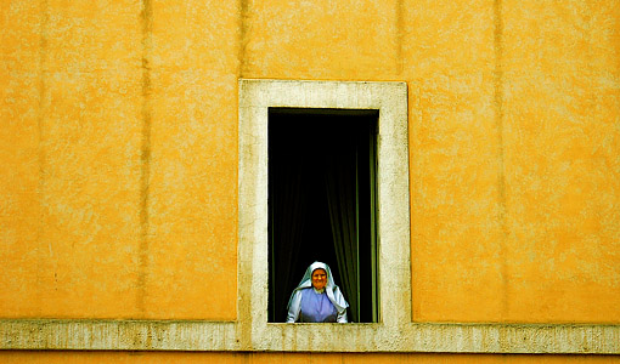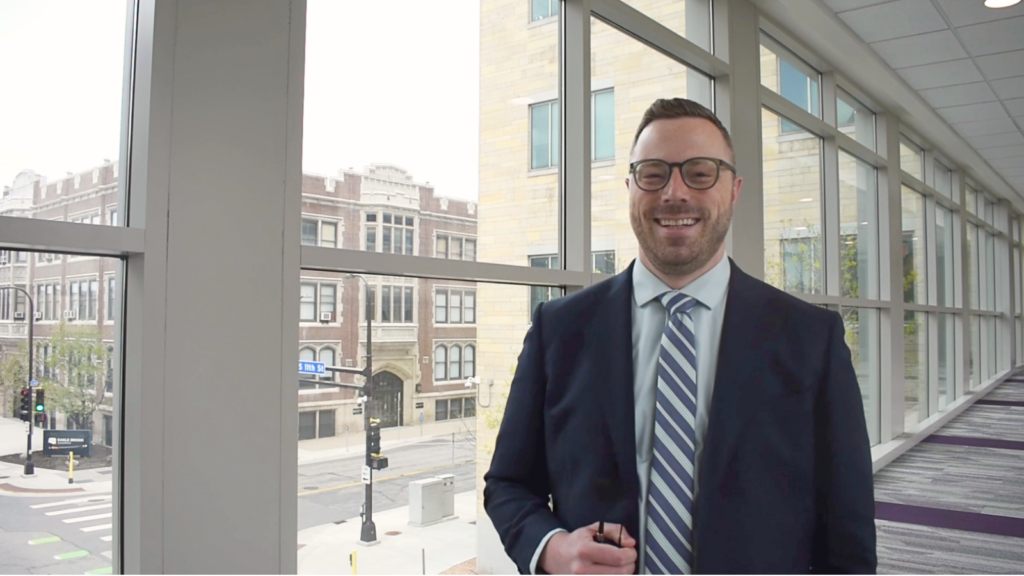I was invited to write this piece a week or two after an English Department meeting that included discussion of our common text program. A small but aggressively pursued controversy from outside the department had been kicked up around Margaret Atwood’s The Handmaid’s Tale, last fall’s common text in English 110, 111 and 190, but we didn’t need a controversy to bring the program onto our agenda. The common text program is always on our agenda, or almost always. The program demands a great deal of time and energy, with some stage or another of the selection process, teaching preparations, allied events or assessment ever rising before us.
This workload is increased when a given year’s common text generates controversy, usually because it presents language or an aspect of experience someone judges inappropriate for 18-year-old men and women at a Catholic university. This fall our choice of The Handmaid’s Tale was attacked on several fronts, including in a newspaper column. The columnist made the amusingly confident assertion that the novel was “utterly passé” in “literary circles,” but the column elsewhere seemed to argue that we should choose “literary classics” for our common texts, which would indeed save us from at least one kind of predictable attack. After all, with such an undeniable wealth of certified classics available, why choose a relatively contemporary text, which people inside and outside the university feel free to attack as unworthy and unwholesome?
Provoking controversy is not a useful goal in itself, but provoking thought is central to our mission as a university, and that’s where our choice of a common text comes most sharply into focus. The most successful common texts over the years have been those that are richly literary (that is, interesting and skillful in terms of style and language), that are substantial enough to bear the weight of sustained attention, that pose a variety of challenges for the reader, and that engage tensions recognizably present in our students’ world.
We certainly could turn exclusively to “classics” and still provoke emotional as well as intellectual discussion (and even generate controversy – selections from Chaucer come to mind). Our openness to relatively recent work and our general preference for texts that reflect the complications of a multicultural world derive from our experience as teachers that those are works likely to provoke thought among our students, engage a full range of emotions, raise real questions, and encourage intellectual conversation. Every literary work starts out being contemporary. Every literary work is written for a living audience of people walking around outside while the writer sweats away with computer or typewriter or pencil or pen or chisel or naked memory and imagination and voice. For us to avoid books by living writers because that would help us avoid controversy would seem to me to be a double error – first because it would take from our students the shared experience of engaging literary forms and voices of their own time, and then because it would limit opportunities for active, fully engaged discussion.
There’s an idea, common among those on the left as well as on the right, that English professors choose literary texts in order to push some social or political agenda. I suppose this happens sometimes, but every teacher I know chooses texts because she or he believes they have literary merit and will provoke thought, spark discussion and generate interesting writing. Literary texts are full of ambiguities and paradoxes and mixed feelings, just as the rest of life is, and like the rest of life, they move us in unpredictable and contradictory ways. Read with an open mind and an open heart, literature makes the world richer and more complicated, exactly the opposite of what propaganda seeks to do.
Although it’s obviously aggravating for department and committee chairs and administrators to have to field attacks and insults from those who disagree with our curricular choices, I believe it’s important to choose texts that challenge our students on a variety of levels, including those that trigger strong feelings. If there is a place in the world that is appropriate for the discussion of controversial matters, it is the university, including the Catholic university. We have in the past included classic texts in our common text selections and we might well do so in the future, but to exclude any text – classic or contemporary – because it could involve controversy would seem to me to be a terrible mistake.







